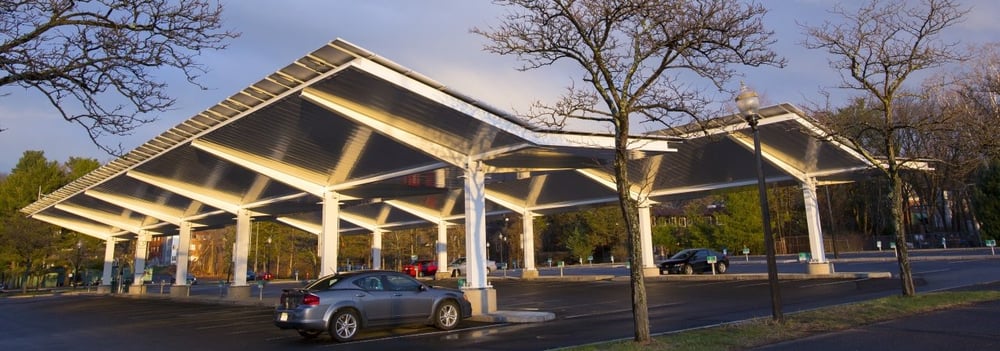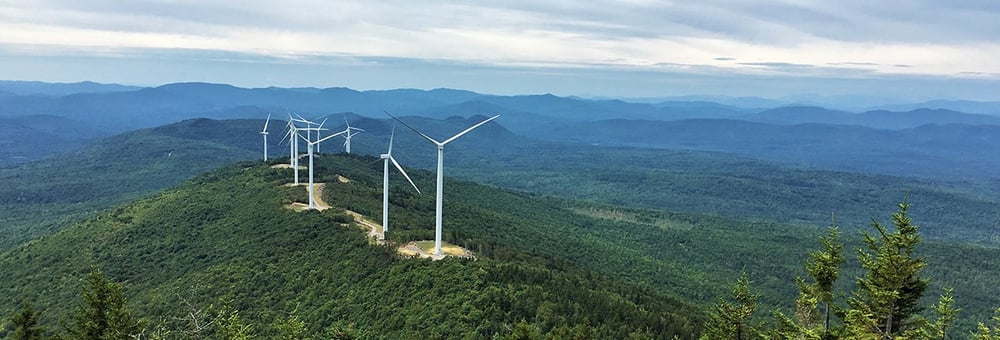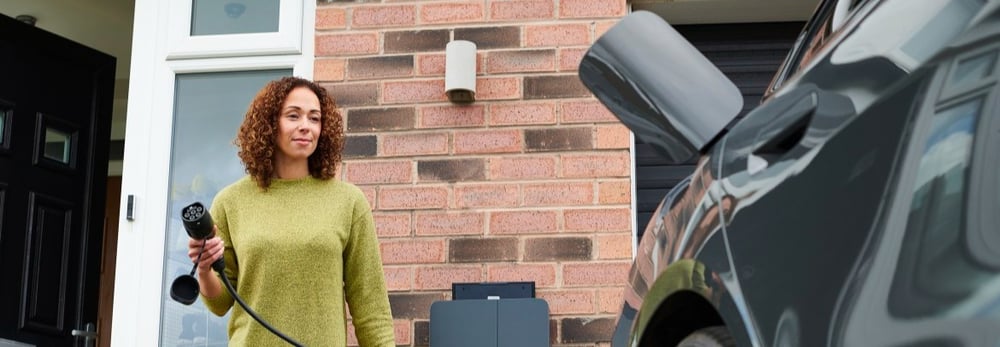On February 7th, Massachusetts State Representatives on the Telecommunications, Utility, and Energy Committee (TUE) led by Representative Roy, House Chair of the Committee, sent several climate and energy bills forward to the next step of the legislative process, the House Ways and Means Committee. It’s taken two months to fully update all the information on the website, but now that all the info is available, we’re excited to highlight nine great sections in the House climate bills.
Because these bills are more then 100 pages when put together and combine polices from dozens of bills put before TUE Committee, covering everything from the energy efficiency of electric vehicle (EV) chargers to how offshore wind farm proposals are graded, this blog is not going to be a full, or even partial, summary of TUE’s bills. Instead, this blog is going to highlight 9 provisions from House TUE’s bills that we would like to thank Chair Roy, and the rest of the House TUE Committee members, for advancing and hope to see passed into law.
Section 32 of H.4502: On Natural Gas Utility Expansions
This section repeals Section 3 of the Gas Leaks Act of 2014. Section 3 requires the Department of Public Utilities (DPU) to approve utility plans that improve the “availability, affordability and feasibility of natural gas service for new customers”. At the time the state’s goal was to help people switch from oil heating to cheaper natural gas. However, Section 3’s requirement that the DPU support hooking up new customers to the gas system runs directly contrary to the state’s current efforts to move homes away from fossil fuel heating systems and towards electric heat pumps to reduce greenhouse gas emissions. The repeal of Section 3 will give the DPU a greater ability to say no to new gas projects and thereby help the Commonwealth meet its climate goals.
Section 1 of H.4503: Encouraging Solar Canopies
This section would set up a program to promote the construction of solar canopies over large parking lots, which can increase clean energy production on developed properties.

Section 2 of H.4503: Offshore Wind & Municipal Aggregation
This section directs the Massachusetts Clean Energy Center to issue guidance on how some entities, including community aggregation programs, can enter into long-term contracts to purchase electricity from offshore wind farms. We have supported related policies in the past (find out more here) because these contracts can help aggregation programs supply their customers with clean electricity at a stable price while encouraging the development of offshore wind.
Section 11 of H.4503: Online Permitting for Solar Projects
The widespread use of solar and energy storage systems is going to be necessary for the state to move away from fossil fuel power. However, like with many clean energy technologies, slow permitting processes can act as an impediment to the deployment of these systems. That’s why this section, which requires town permitting authorities to allow people to apply for permits for solar and energy storage systems online, requires towns to either approve or deny these systems permits within a set timeframe, and limits the number of inspections a town can require, will help the Commonwealth generate more clean electricity.
Section 16 of H.4502: On Keeping EV Chargers Working
This section gives the Division of Standards (DOS) the authority and responsibility to inspect public EV charging stations. We’ve known for some time that too often charging stations don’t work or stay in a state of disrepair for too long. Giving the authority to inspect and regulate EV charging stations to the Division of Standards is a good step towards ensuring more stations are working more often. This section also achieves one clear item highlighted by the Electric Vehicle Infrastructure Coordinating Council.
Section 28 of H.4503: Northern Maine Onshore Wind
Over the last several years, Massachusetts and Maine have been working together to support the development of a large onshore wind farm in northern Maine. If completed this project could supply clean electricity to both states. However, there have been delays in some aspects of the project. This section moves back a statutory deadline and would allow Massachusetts to continue being involved in the project.

Section 38 of H.4502: On Helping People Afford EVs
This section extends the authorization to use revenue collected from the Regional Greenhouse Gas Initiative (RGGI) to fund the state MOR-EV program until the end of fiscal year 2027, to the tune of $27 million/year. MOR-EV is the state program that offers drivers a rebate for buying a new or used EV, provided it meets certain eligibility requirements. Until EVs reach cost-parity with gas-powered cars (expected towards the end of this decade), MOR-EV will be crucial to (a) making sure adoption occurs at the pace needed to meet our emissions reductions requirements and (b) make sure EVs are more available to lower- and moderate-income drivers, too. To learn more about MOR-EV, read our recent blog.
Section 39 of H.4502: On Installing EV Chargers
This section would prohibit homeowner/condo associations, historic district commissions, or neighborhood conservation districts from preventing a homeowner from installing electric vehicle charging stations. At a time when we need to speed up the rate of EV adoption to slow climate change and protect public health, there’s no space for concerns about aesthetics to prohibit people from installing charging stations at home.

Sections 3 - 6 of H.4502: On Energy Efficiency
These sections largely phase out the sale of fluorescent light bulbs in the Commonwealth. This is a positive step forward because replacing the use of fluorescent lights with longer-lasting LED bulbs can reduce the state’s electricity consumption and decrease the risk of mercury exposure (you can find more here).
How You Can Help Pass These Policies
While many provisions of bills that leave TUE have a good chance of making it into law (most of the time when a policy doesn’t make into law it's because it fails to leave committee) changes can be introduced both by the House Ways and Means Committee and when it goes before the full House. If you want to make sure one or more of these provisions is passed into law, call or email your State Representative (find your lawmaker’s contact information here), and be sure to include the bill and section number and why you support that policy.
What’s happening in the Senate?
If you're wondering why this is a very House-focused blog it’s partly to keep the blog from getting too long and partly because we are waiting for the Senate TUE to release its own climate legislation, which we expect to happen in the next few weeks or months.



Comments